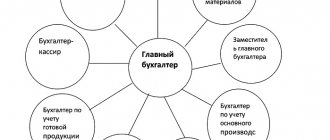A little history
The word “personnel officer” came from the USSR. At that time, the HR specialist was involved in filling out work books, maintaining employees’ personal files, writing job descriptions, and also monitored compliance with labor protection legislation.
Previously, working in the HR department was unpopular. She was considered boring and unpromising. Is it a great thing to move pieces of paper from place to place? It's a complete routine.
Today in Russia personnel management is at the stage of formation. The HR profession is undergoing changes. The process of formalizing its standards takes place, and the position acquires new features and becomes attractive to applicants. The reason lies in the fact that there are many Western companies operating in the country that cultivate corporate ethics. Accordingly, there is a need for highly qualified specialists whose skills are not limited to “paper” work.
One day in the life of a personnel officer
October 12 is Personnel Worker Day in Russia. Today we honor personnel officers and read about how difficult (but fun!) life is for representatives of this profession. It is curious that often the responsibilities of our heroes go beyond the usual ideas about the profession and represent full-fledged HR functionality.
Elena Zyuzina, leading HR specialist at the otc.ru trading platform: “My morning begins with a run. After my run I go to wake up the whole house. In a short period of time, you need to do everything: feed the animals (cotops), collect and take your son to school, and be on time for work.
I work for a company that has regional branches throughout Russia. Due to the time difference, many regions start their working day earlier than I do in Moscow. Therefore, I know that in the morning I will already have a large number of letters and questions from employees via email and Skype.
So, what do we have here... Oh, 25 requests for certificates of employment and copies of work records! Yes, this is nonsense. And we need scans certified right now, because the working day for the regions is ending soon, and “I have to go to the bank after work, please.” Everything will be now!
Yes, this is nonsense. And we need scans certified right now, because the working day for the regions is ending soon, and “I have to go to the bank after work, please.” Everything will be now!
While I’m making certificates and copies of work records, at the same time I’m communicating with employees passing by.
Well, it's already 11 o'clock. Hiring a new employee. I meet, formalize, take you around the office, show you what and where.
While walking around the office with a new colleague, vacation applications piled up on the table. I count my vacation days and look at the calendar. Well, tomorrow is payday. This means that I need to process everything and close it to payroll - check all absences, no-shows, sick leave according to the report card, issue all orders to work on a day off.
While I’m checking the report card, I remember that tomorrow I need to transfer deputy manager Ivan Ivanovich Petrov to the position of manager. This means that today we still need to have time to prepare changes in the staffing table and documents for Ivanovich to sign.
And then a phone call: “Good afternoon, please confirm the employee’s availability.” I will confirm, of course. Just don’t ask about salary, I have no right to give such information.
Well, I think I’ve sorted out all the current issues. I’ll try to do something not urgent: soon we need to make changes to the internal labor regulations. I’m sitting there, formulating it, and then: “Hi, I want to quit.” Well, it’s sad, of course, but I am obliged to provide a sample resignation letter. The application was written, and the time was already 17:00. The last hour before the end of the working day is the quietest. The flow of people wanting to go on vacation, apply for a job, quit and transfer is declining. You can do something not urgent, but useful for work - sort out the documents in the folder, put things in order.
In the evening I run to school to pick up my son and do homework. And tomorrow morning I will start my cheerful life as a personnel officer again.”
Natalya Bazarova, HR administration expert at ER-Telecom Holding JSC: “Since childhood, I had a picture in my head of who a HR officer is. I imagined an auntie sitting on a safe with documents and work books. Today I am engaged in personnel administration in a large federal company and I see that everything is completely wrong.
HR is not primarily about documents, but about communicating with people. People come to me with a variety of questions - vacations, transfers, payments, incentives and punishments... We are all people, we are all different. And I try to accept and understand everyone, I share with them their fears and hopes, sorrows and joys.
This is how I plan my working hours: in the morning I receive employees on personnel matters, then work with documents - reporting, personnel administration, interaction with government agencies. But virtually the entire working day, communications with employees continue - consultations, support, search for possible solutions within the framework of the law that would best suit both the company and people.
There is probably no other division in the company that constantly interacts with all other areas. Of course, difficult, non-standard situations also happen. In such cases, we plan to involve management and representatives of various company services, and new meetings and meetings appear in my work schedule.
We must always be one step ahead. Therefore, in our working day we always find time to study changes in legislation and regulations (the Labor Code is our everything!), and share knowledge with colleagues.
Of course, there is paperwork, but at ER-Telecom its amount is minimal, within the framework of legal requirements. This became possible thanks to automation. We do not isolate ourselves, and if we see other processes that can be made digital, we implement it. Therefore, during the working day I am also in close contact with our IT services.
This is how my day goes: communicating with people, working with documents, communicating with people, working in information systems, communicating with people, learning new practices and norms - and communicating with people again. And I like it."
Anastasia Bamburova, head of the personnel management department of the BON TON Academy of Sciences: “The most interesting things begin on Monday. Who said that the intensity of work should increase gradually? On the contrary, the first day of the week prepares you for a fighting mood. New tasks are lined up. And all things planned in advance take on a new order.
Another Monday confirmed this axiom. Already the first minutes of the morning prepared a “light” shake. An employee who just got a job a couple of days ago called and said: “I’m quitting.” First thoughts: “What happened? Why such a hasty decision? The team is friendly, all professionals, so I definitely didn’t want to blame the team. However, during the conversation it became clear that it was not about people at all. The employee, unfortunately, did not calculate his strength. The difficulties associated with getting to the office turned out to be critical and “overshadowed” all the advantages of the new job. We, of course, discussed this issue, but the disadvantages in theory and in practice are completely different things.
I think to myself: “I haven’t even reached the office before I’m fired. What else will make Monday happy? I approach my workplace, mentally prepare myself for a cup of coffee and solving current problems strictly according to plan. But the situation is developing in accordance with the aphorism “success most often goes not to the one who tries to plan everything in advance, but to the one who knows how to take advantage of every opportunity.”
Exactly five minutes after the start of the working day, an employee comes up with the words: “I need a vacation.” No problem. It is enough to write an application and after two weeks, according to the standard procedure by law, go on vacation. “I need it urgently, from Friday,” the employee specifies. Where does the rush come from? It turns out that problems have arisen in the family, and you need to leave for another city. I am obliged to enter into the employee’s situation and try to find a way out of the problem, taking into account the interests of both parties - the company and the employee himself. We solved the problem, agreed on the vacation, and informed the accounting department. All that's left is to drink coffee. However, not all so simple.
The next five minutes can be described as an alternating “pilgrimage” of managers to the office with dialogues “everything is lost” and “what to do?”
The day, of course, was initially scheduled point by point. However, the to-do schedule should not be an ossified structure. There is always room for a more important task that requires a solution “here and now.”
Time management skill is one of the main ones in the work of a personnel officer. Having set priorities, I began solving key issues and coped with the heavy flow of cases. Replacements were found, salaries were accrued, employee problems were resolved, so the day was productive.
It may be difficult, responsible and intense, but I am always in good shape, with a smile and an optimistic mood.”
Happy holiday, personnel officers. And remember, you are always needed 
Description of the profession
A human resources specialist (also called a personnel officer or personnel inspector) is a company employee who is in charge of personnel records management. His main responsibilities: registering a new employee, drawing up the necessary documents, issuing certificates to employees, arranging leave, filling out work books, and the like.
If the company is large enough and has several HR officers on staff, the entire scope of responsibilities can be divided between them. For example, one is responsible for paperwork, another deals exclusively with labor protection, and the third performs HR functions.
The head of a department, as a rule, resolves global and complex issues. In particular, he takes part in legal proceedings (labor disputes) as a representative of the employer.
The activities of a personnel officer are focused on the labor process. This is how it differs from HR. His work is based on strict legislative norms, judicial practice, internal instructions and local regulations adopted by the company.
Human resources department inspector
This is the official name of the HR profession. His job is to record the employees of the enterprise, document the admission, transfer and dismissal of employees, as well as maintain other established personnel documentation - personal files, materials requested by the certification commission and which are needed to nominate the employee for an award or encouragement.
The HR inspector fills out work books and calculates the length of service. If necessary, he draws up and issues certificates containing information about the employee’s work activities, for example, salary for the last 6 months - this is often required by banks to confirm solvency.
Head of HR Department
He is responsible for the company's staffing levels. He needs to provide the enterprise with a sufficient number of employees and workers in those professions that are required for its full-fledged and uninterrupted activities. The head of the HR department can make an administrative career. Its peak is the general director of the enterprise.
The position of head of the human resources department is found in almost every large company and in most relatively small enterprises. In small companies with only a few employees, the director works directly with the staff.
Job Description of HR Officer
According to the general sample job description, a personnel officer is a specialist. His appointment or dismissal from his position occurs on the basis of an order from the general director of the organization on the recommendation of his immediate superior.
Earlier in the article, we reviewed the requirements for applicants for each possible position. Depending on the category (inspector, specialist or supervisor), when hiring, the immediate supervisor monitors their compliance.
In the event that a personnel officer is temporarily unable to perform his duties, they will be performed by his replacement.
The HR person should know the following:
- Legal and legislative documents in any way related to the labor process, the process of maintaining and managing personal files of employees, registration of pensions, maintaining work books and concluding employment contracts.
- The structure of the company and the ways in which personnel interact within it.
- Current labor legislation.
- Rules for working with personnel and preparing reports.
- Rules for maintaining personal data of employees.
- The procedure for maintaining pensions, vacations, accrual of benefits, compensation, etc.
In accordance with the legislation, the Regulations on the personnel department of the immediate organization itself, its charters, internal regulations, orders of management and job descriptions, the activities of a personnel officer are carried out.
In accordance with the existing and established basic responsibilities and rights prescribed in the Resolution of the Ministry of Labor of August 21, 1998, the organization draws up job descriptions for the positions held. It may contain additional clauses on processing or vacation conditions, schedule, additional requirements and other important conditions.
The development of instructions is carried out by the top management of the organization, their deputies or immediate superiors of personnel officers. During the process, it is agreed upon with lawyers, signed and comes into force.
Here is an example of a sample job description, on the basis of which an organization can draw up its own version:
As can be seen from the instructions, a personnel specialist must not only engage in the selection and placement of workers, but also other types of activities.
An equally important point that must be indicated in the instructions is the rights of the employee.
And an equally important section is the responsibility of the specialist, since he works mediocre with personal affairs and has confidential information.
Where do they teach
The ideal option for a career as a personnel officer is a legal education. Its presence is not essential, and many representatives of this profession have diplomas in economics or accounting, but the employer will prefer a candidate with specialized training.
When entering a higher education institution, choose the specialty “personnel management” or “documentation and archival science.” They are best suited for your future job in the HR department.
Many Russian universities train specialists in these profiles. Let's list a few as examples:
- Moscow University of Finance and Law (document science and archival science).
- Kemerovo State University (document science and archival science).
- St. Petersburg State University of Civil Aviation (personnel management).
- Russian New University (personnel management).
- Nizhny Novgorod Technical State University named after. R. Alekseeva (document science and archival science).
To enter these specialties, you must pass the Unified State Exam in history, social studies and the Russian language.
Responsibilities
The following points relate to the responsibilities of a personnel officer:
- Prepares time sheets, records and analyzes working hours.
- Prepares temporary sick leave sheets, care certificates and other documentation that indicates a valid reason for staff absence from work.
- Performs payroll calculations.
- Responsible for registering transactions .
- Makes social contributions from the payroll.
- Transfers funds to the material incentive .
- Prepares periodic reporting on the unified social tax.
- Prepares accounting documentation before transferring it to the archive .
- Monitors settlements with accountable persons.
- Prepares information to balance the balance .
- Responsible for maintaining personnel documentation .
- Hires and fires employees. Responsible for processing vacations and changing salaries.
- Maintains staffing schedules , prepares and records work books , and maintains personal files of employees.
- Engaged in concluding employment contracts and liability agreements.
- Maintains log books and does archiving .
- Issuing certificates and copies of documents to employees of the organization.
- Deals with statistics on personnel accounting and movement .
List of responsibilities
The HR specialist, according to the job description, is obliged to:
- Study the professional and qualification structure of personnel at the enterprise as a whole and in its divisions in particular.
- Maintain personnel records: hire, transfer employees from one department to another, fire.
- Inform employees about new vacancies. Cooperate with recruitment agencies.
- Generate ideas for the professional development of employees, advise them on career growth or advanced training. Performing this task is the responsibility of the HR manager, but in some companies this is required from the HR manager.
- Participate in planning activities aimed at reducing staff turnover and improving discipline.
- Follow the rules for filling out and storing work books.
- Prepare documents for payment of compensation and provision of benefits, registration of pensions for employees.
If a personnel officer works in organizations or companies with special categories of employees (for example, metallurgists, teachers, medical workers, civil servants), he must know the specifics of personnel records management in certain areas. What exactly are we talking about? About non-standard duration of leave, the right to apply for a long-service pension, etc.
Skills and personal qualities
In addition to professional skills and theoretical knowledge, a HR specialist at an enterprise needs to have a number of skills and personal qualities, such as:
- stress resistance;
- responsibility;
- performance;
- the ability to gain authority and control one’s emotions;
- openness to new contacts and experiences;
- punctuality and discipline;
- desire to help employees;
- analytic skills;
- accuracy and attention to detail.
MAKE AN INVENTORY OF EXISTING HR DOCUMENTS
Ideally, you need to carry out a full-fledged procedure for accepting and transferring cases from a former employee, but this happens very rarely. Even in large organizations, personnel documents are not always transferred according to the act. It’s even worse if the new employee does not have the opportunity to communicate with the previous personnel officer at all and is forced to literally look for the company’s personnel documentation.
Therefore, on the first day, you need to collect all available folders and documents on personnel for the current year, make an inventory of them as of the date of your first working day. The inventory can be presented in the form of a table (see example).
The last column of this table is especially important if the documents are drawn up with flaws: employee signatures are missing, order numbers are missing, unified forms are filled out incorrectly, etc.
Such an inventory will not hurt when entering any position (accountant, for example), which involves maintaining a certain array of documents.
Of course, you can do without an inventory. But then all the mistakes in the work of the previous personnel officer will not be recorded, you will not separate them from your period of work. And gradually the previous shortcomings will be associated with you, and your excuses that “it’s not me” will not be accepted.
Compiling an inventory will not take much time, but it will give a clear picture of the state of documentation at the time of the start of your activities in the organization and will become the starting point of your work.
Wage
The average in Russia is from 15 thousand to 35 thousand rubles, in Moscow - from 18 thousand to 50 thousand rubles. In St. Petersburg, the situation is close to the capital’s - personnel officers receive from 20 thousand to 55 thousand rubles.
According to the website russia.trud.com, the work of personnel officers is valued most highly in the Magadan region. There, a representative of this profession is paid an average of 60 thousand rubles. The Moscow region is in second place in terms of wages. In third place is the Yamalo-Nenets Autonomous Okrug.
Average salary in Moscow and its comparison with salary in the country
Moscow State Statistics Service provides official data on the growth of the average income of Muscovites by almost 10,000 for the period from January to July 2019. If in 2020 this figure was 81,841, then in 2019 it was 91,420. In June 2020, the salary increased to 96,030 rubles.
Background information, based on information from Rosstat, talks about an increase in the average monthly nominal wage from 42,263 in January to 49,348 rubles in June 2020.
The difference in income between capital city residents and regional residents is obvious from the above statistical data.
Characterize wages using the following terms of calculation methods:
- average;
- modal;
- median;
- nominal.
A statistical sample of frequently encountered indicators is made and the modal salary amounts are obtained. It is almost 25,000 in 2019 in the Russian Federation. The amount of modal wages is more realistic than the nominal one - 42,595, after deducting tax it is already 37,057. More residents of the country trust this statistics, because for many, 25,000 rubles is a decent income.
Career
Personnel officers are more likely to have a horizontal career. This is possible if such an employee is loaded with additional tasks or given the opportunity to manage HR projects. To speed up your progress, you need not only to flawlessly fulfill your professional duties, but also try to expand your functionality.
The first step in the vertical career of a HR specialist is considered to be the position of department head. Some acquire the status of a serious strategic partner and join the company’s board. The top of the career ladder is the position of the general director of the enterprise.
Prospects for the profession
Today there is a revival of the HR profession, which until recently was considered unpopular and uninteresting. After all, working with personnel is one of the important activities of any company that wants to develop and be competitive.
In companies with more than 15 employees, a human resources department is indispensable. This means that the profession will be in demand. Today, a qualified experienced manager does not spend more than a month looking for a job: good specialists are in great demand.







